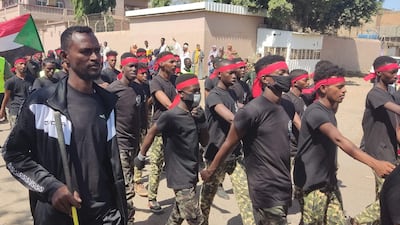Sudan's civil war “risks triggering the world's largest hunger crisis”, the UN World Food Programme said on Wednesday.
The war-torn country was plunged into chaos in April last year when clashes started in the capital Khartoum between the military, led by Gen Abdel Fattah Burhan, and the paramilitary group known as the Rapid Support Forces, commanded by Gen Mohammed Dagalo.
The RSF and the army have been accused of indiscriminate shelling of residential areas, attacking civilians, and blocking and seizing essential aid.
Thousands of people have been killed and more than eight million displaced, in addition to two million who had been forced from their homes before the conflict, making it the world's largest displacement crisis.
International organisations have voiced concerns over bureaucratic hurdles when trying to gain access to Port Sudan, which is controlled by the military, to deliver humanitarian aid to the country.
The WFP is unable to access 90 per cent of those facing “emergency levels of hunger” and says only 5 per cent of Sudan's population “can afford a square meal a day”.
The International Criminal Court's chief prosecutor Karim Khan told UN Security Council members in January that there is evidence of war crimes being perpetrated in the Darfur region by the Sudanese armed forces and the RSF.
According to a report to the Security Council released last month, sexual violence by the RSF and its allied militia has been widespread.
The panel of experts report said that women and girls as young as 14 had been raped by RSF members at a World Food Programme storage site that was under the control of the paramilitary group.
Linda Thomas-Greenfield, US ambassador to the UN, told reporters in New York that the international community is not doing nearly enough to address the “dire crisis” in Sudan.
“Collectively, we're not doing nearly enough to alleviate the suffering of millions and millions of Sudanese to press the SAF and the RSF to stop impeding the delivery of humanitarian aid that is needed to prevent famine, to hold the perpetrators of atrocities to account and to bring this senseless conflict to an end."
She also demanded that regional powers stop sending weapons to Sudan.
Sudan is "a conflict that, as this report details, is being fuelled by arms transfers from a handful of regional powers. Armed transfers that must stop," Ms Thomas-Greenfield said.
She said the US will continue to lead on all these fronts, while also relying on the support of other key players, including the African Union and leaders from East Africa and the Gulf.
“We will continue to push in the Security Council which has been shamefully quiet thus far. To push them to say more and … to do more,” she said.


